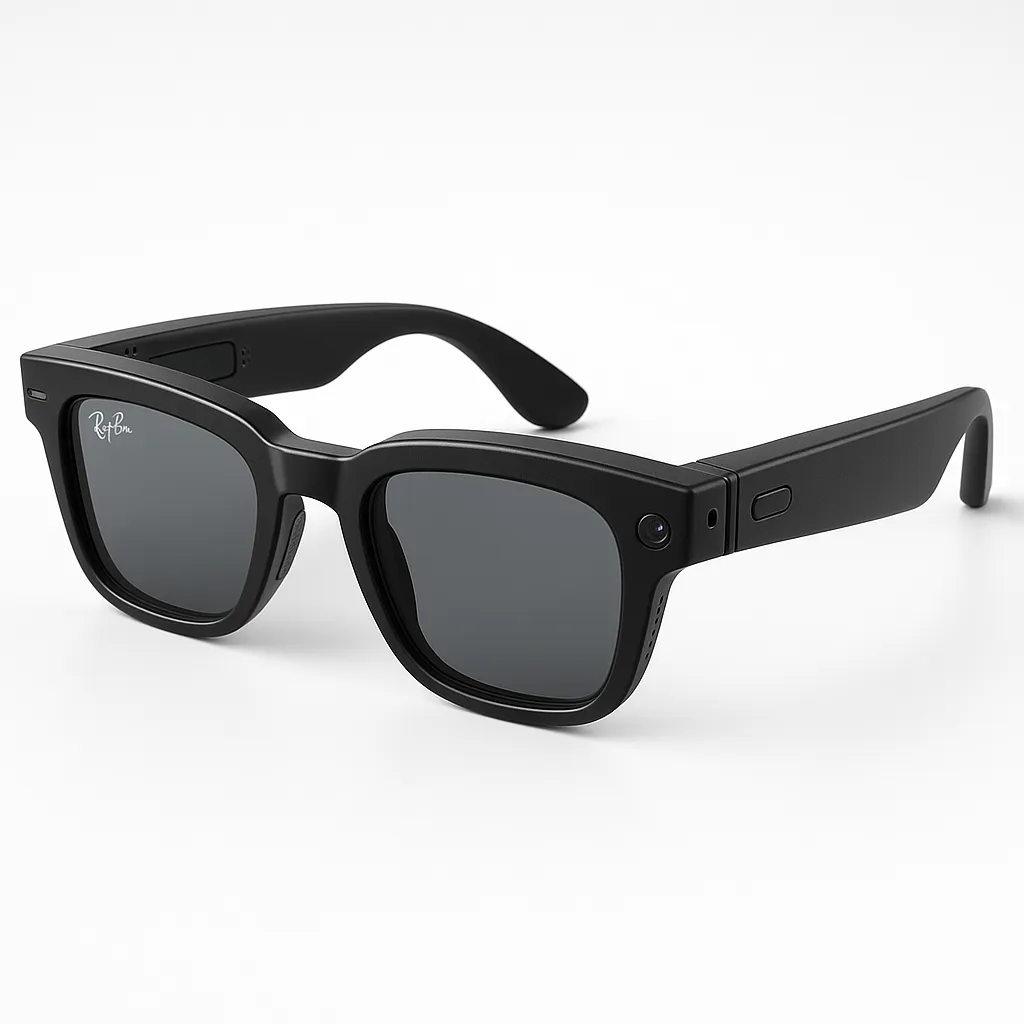Meta Unveils First Smart Glasses with Built-In Display at Connect

Meta Platforms introduced its inaugural consumer-ready smart glasses, featuring a mini display in the right lens, during its annual Connect developer conference in Menlo Park, California, on September 17, aiming to extend the success of its Ray-Ban line and advance “personal superintelligence.”
The announcement underscores Meta’s push into AI-powered eyewear amid intensifying competition and follows years of collaboration with EssilorLuxottica to bring augmented capabilities to stylish frames.
Nut Graf
Meta’s new Ray-Ban Meta Display glasses-priced at $799 and shipping September 30-combine notifications, AI assistance and livestreaming in a familiar form factor, while the company also revealed Oakley Meta Vanguard glasses for athletes. This launch marks a pivotal step as Meta seeks to make smart glasses a mainstream computing platform.
Key Details
- Product and Pricing: Ray-Ban Meta Display glasses include a compact digital screen for alerts and basic apps, retail at $799 and arrive in stores September 30. Oakley Meta Vanguard athletic glasses, with real-time fitness data integration, will cost $499 starting October 21.
- Demonstration Glitches: CEO Mark Zuckerberg’s onstage call demo faltered, drawing laughs and applause, yet he emphasized glasses as the “perfect form factor” for on-the-go AI enhancements.
- Feature Set: Both new models support Meta AI voice assistant, hands-free photo/video capture, livestreaming to Facebook and Instagram, and enhanced battery life.
- Strategic Context: The launch at Meta’s Menlo Park HQ coincides with scrutiny over Reality Labs’ multi-billion-dollar deficits and criticism of Meta’s approach to child safety on social platforms.
- Competitive Landscape: Despite leading smart glasses R&D, Meta trails rivals like Google in sophisticated AR models; the company has pledged massive AI chip investments and aggressive talent recruitment to catch up.
Market Impact and Outlook
Analysts remain skeptical about immediate sales volume for the display-equipped glasses but view the debut as a foundation for next-generation AR devices slated for 2027. Meta’s long-term vision positions smart glasses as gateways to AI-driven personal augmentation, potentially reshaping how users interact with digital services while remaining grounded in the physical world.
Categories
Autos and vehicles Beauty and fashion Business and finance Climate Entertainment Food and drink Games Health Hobbies and leisure Jobs and education Law and government Other Politics Science Shopping Sports Technology Travel and transportationRecent Posts
Tags
Archives
08/19/2025 (3) 08/20/2025 (40) 08/21/2025 (27) 08/22/2025 (22) 08/23/2025 (4) 08/24/2025 (21) 08/25/2025 (30) 08/26/2025 (24) 08/27/2025 (29) 08/28/2025 (16) 08/29/2025 (9) 08/30/2025 (13) 08/31/2025 (17) 09/01/2025 (167) 09/02/2025 (124) 09/03/2025 (149) 09/04/2025 (112) 09/05/2025 (72) 09/06/2025 (169) 09/07/2025 (162) 09/08/2025 (150) 09/09/2025 (176) 09/10/2025 (194) 09/11/2025 (194) 09/12/2025 (186) 09/13/2025 (207) 09/14/2025 (159) 09/15/2025 (175) 09/16/2025 (198) 09/17/2025 (196) 09/18/2025 (196) 09/19/2025 (207) 09/20/2025 (129) 09/21/2025 (4)